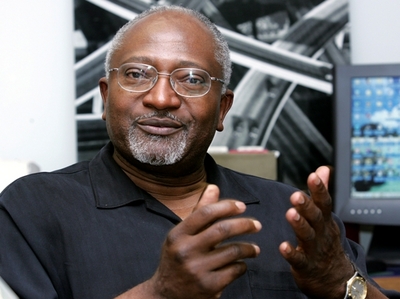Look out African Americans! Biomass incineration will be coming to your neighborhoods soon. Biomass incineration is now being promoted as green and clean energy, green jobs and a strategy to combat climate change. Many of our black elected officials, business people, and civil rights leaders are swallowing this pitch mainly because black people need jobs. Biomass incineration marketers are exploiting the extremely high black jobless rate to peddle their wares. The April 2011 black jobless rate stood at 16.1 percent, compared to 11.8 percent for Hispanics and 8.8 percent for whites. Clearly, black communities are vulnerable.
However, not everyone is falling for this sales pitch. We now see anti-biomass incineration lawsuits, protests, jailings, and resistance have sprung up all across the southern states, from Virginia to Texas, energy companies have targeted black communities for the operations--a practice the Valdosta-Lowndes NAACP claims is old fashion environmental racism perpetrated against local citizens. This practice is also referred to as energy apartheid, where people of color get more than their fair share of "dirty energy" when compared with whites.
There are some important lessons that could be learned from the garbage incineration health concerns and facility siting of the 1990s, that also targeted people of color and poor communities for their operation with the promise of jobs. Environmental justice siting concerns often got buried in the excitement and notion of jobs for unemployed residents. In the end, the promise of jobs turned out to be more promise than real jobs for neighborhood residents who hosted these polluting facilities. Garbage incinerators provided few "pathways out of poverty," but rather evolved into "roadmaps to pollution" in economically impoverished communities.
Once agan, facility siting concerns have largely been placed on the back burner. If biomass energy plants were such great green economic engines, it is unlikely that African Americans and poor in Georgia, Florida, South Carolina, Texas, and other places would be getting more than their fair share of them. In reality, the burning of biomass to generate electricity is toxic. It is neither "green" nor "clean." Biomass can include any non-fossil fuel that is arguably "organic."
Generally, biomass facilities emit more carbon dioxide per megawatt hour than burning fossil fuels, as well as NOx, particulates and other hazardous air and water pollutants that threaten human health and the environment. They also emit fine particulate matter, sulfur oxides, carbon monoxide, volatile organic compounds, and various irritant gases such as nitrogen oxides that can scar the lungs.
African American politicians and other leaders need to share all of the facts surrounding biomass incineration with their constituents. They need to take a quick history lesson and take note of what happened when poor communities and communities of color were given the false-choice of "poverty or pollution." Historically, African American and other people of color communities for too long have borne a disproportionate burden of pollution from incinerators, smelters, sewage treatment plants, chemical industries, and a host of other polluting facilities.
The best predictor of a person's health is still his or her zip code or neighborhood. These findings have been chronicled in hundred of books, including Environmental Health and Racial Equity: Building Environmentally Just, Sustainable, and Livable Communities, published this April. When communities have the facts, they generally end up making the right decision. It is time for our leaders to fight for and demand a clean, renewable, and green energy future for all Americans.





